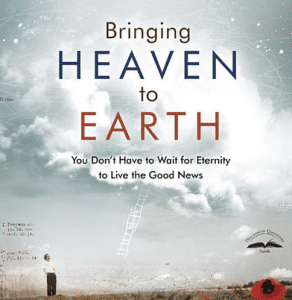 I’ve said this before, and I’ll say it again and now: one of the most pressing issues facing youth ministry and the Christian church, if not the issue, is religious pluralism and universalism. Is there only one way to God, through Jesus, or not? The issue sorts into things like exclusivism (one way), inclusivism (one way but God is generous), pluralism (more than one way) and universalism (all go to God). What do Christian teenagers think? Mike Nappa did a survey of 845 Christian teenagers, The Jesus Survey, and asked them the pluralism question — in particular, he asked if there was one way to God or not.
I’ve said this before, and I’ll say it again and now: one of the most pressing issues facing youth ministry and the Christian church, if not the issue, is religious pluralism and universalism. Is there only one way to God, through Jesus, or not? The issue sorts into things like exclusivism (one way), inclusivism (one way but God is generous), pluralism (more than one way) and universalism (all go to God). What do Christian teenagers think? Mike Nappa did a survey of 845 Christian teenagers, The Jesus Survey, and asked them the pluralism question — in particular, he asked if there was one way to God or not.
And he probes affirmations and denials to sort the Christian teenagers out.
Do you see a concern here? Is this typical teenage tolerance, lack of clarity in thinking, etc., or is this a big issue? Do you see it in your youth groups? Where do you think are the sources of the breakdown of exclusivism in the churches today?
1. 48% strongly disagree that “Jesus, Mohammed, Buddha and other great teachers… have equal standing in leading people to haven.” 19% somewhat disagree. 67% are more or less on the only one way side; 10% strongly agree and 23% somewhat agree. We see there religious tolerance and possibly pluralism. 56% strongly agree 100% that Jesus is the only way, while 24% somewhat agree; then we have 13% and 7% who disagree.
2. Nappa’s synthesis: 39% believe Jesus is the only way; 49% are unsure; 13% think Jesus is not the only way.
3. His big summaries: 33% are pluralist — tolerance and pluralism and multiculturalism are brought into this conclusion. Only 39% are confident in their exclusive stance on Christ as the only way.
4. Teenage girls are slightly less pluralist. Nappa correlates again with Unshakeables on their view of Scripture. His conclusion: “raising youth with strong Christian faith means first raising kids who have strong faith in God’s Word” (82). I was taught we raise animals and “rear” kids, but that’s not the point. Correlation, probably; but I suspect this isn’t as causal as much as Nappa seems to be making it.















